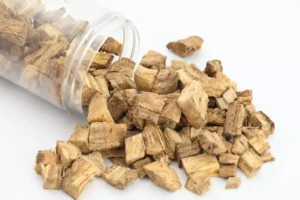Why Does Wine Cause a Stuffy Nose?

Having sluggish ALDH2 enzymes, or lower levels of it altogether, is ultimately the product of having genetic variation in your ALDH2 gene. Specifically, genetic changes that make your corresponding ALDH2 enzyme bad at its job. What’s more is that this genetic variation can be passed down from parent to child, making alcohol intolerance an inherited condition.

Everything You Need to Know About a Beer Allergy
The process starts with an enzyme in your liver, called alcohol dehydrogenase (ADH), which converts ethanol into acetaldehyde. As it turns out, understanding your alcohol-induced stuffy nose starts with understanding how your body processes alcohol — or tries to, anyway. Once you notice patterns, your provider may have you try an elimination diet to see if your symptoms improve when you stop consuming something that could be a trigger.
How is alcohol allergy diagnosed?
Symptoms may include respiratory issues, hives, or digestive problems. If you suspect a sulfite allergy, consider consulting an allergist for testing and avoid alcohol with high sulfite content, such as red wine. If you are allergic to alcohol, it’s important to avoid all types of alcoholic beverages and any food products containing alcohol. Unlike alcohol intolerance, where the body has difficulty processing alcohol, an alcohol allergy involves an immune system reaction to alcohol or one of its ingredients. Common allergens in alcoholic beverages include grains (like barley, wheat, and rye), yeast, hops, and even sulfites.
Health insights you can act on
Another technique is being developed which involves placing the allergen under the tongue. Nasal rinse solutions can be bought pre-prepared in bottles or sachets. Nasal polyps are soft, noncancerous growths on the lining of the nose or sinuses. ASCIA does not endorse products from sponsoring organisations, nor is it influenced by sponsoring organisations with regard to the content of education programs and websites.
When DAO levels are reduced or inhibited, histamine levels can rise, leading to histamine intolerance or overload. This can result in symptoms resembling allergic reactions, including headaches, nasal congestion, skin flushing, and gastrointestinal discomfort. The histamine causes the blood cells in the nasal region to dilate, resulting in mucus, nasal congestion, sneezing, and a runny nose. However, the severity of these symptoms may vary from person to person. Sulfites, which are preservatives found in wine and beer, can trigger allergic reactions, especially in individuals with asthma or sulfite sensitivity.
- In some cases, reactions can be triggered by a true allergy to a grain such as corn, wheat or rye or to another substance in alcoholic beverages.
- If you have alcohol allergy, the only way to avoid symptoms is to avoid alcohol completely.
- Nasal rinse solutions can be bought pre-prepared in bottles or sachets.
- We encourage you to review the policies and terms of all websites you may choose to visit.
Persistent rhinitis

If someone believes they have an alcohol allergy or intolerance, they should stop drinking alcoholic drinks and visit their healthcare provider for testing and advice. If you have a true alcohol allergy, the only way to avoid symptoms is to avoid alcohol entirely. Even a small amount of alcohol can trigger a severe reaction. Read the ingredient lists of foods and drinks, ask restaurant staff for information about menu items, and avoid products that contain alcohol. Yes, it is possible to develop alcohol intolerance later in life. Intolerance is different from an allergy and usually involves symptoms like flushing, nausea, or headache.
- Scientists have not yet identified the reason for this association.
- As we now know, alcohol intolerance is an issue with metabolizing alcohol — not an overzealous immune system.
- People may also have an allergic reaction to specific ingredients in alcoholic drinks rather than the alcohol itself.
If you do choose to drink wine, white and rosé are your best options. While beer can contain histamines, certain types like low-alcohol beer may have lower histamine levels compared to other varieties. Lastly, alcohol is a diuretic, meaning it increases urine production and can lead to dehydration.

Maxmonte L Tablet is taken with or without food in a dose and duration as advised by the doctor. The dose you are given will depend on your condition and how you respond to the medicine. You should keep taking this medicine for as long as your doctor recommends. If you stop treatment too early your symptoms may come back and your condition may worsen. Most of these sneezing after drinking alcohol are temporary and usually resolve with time.
148 total views, 4 views today
